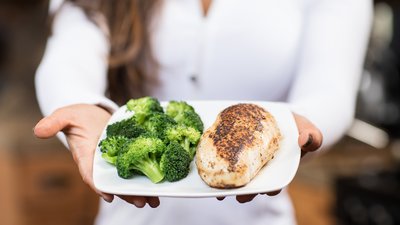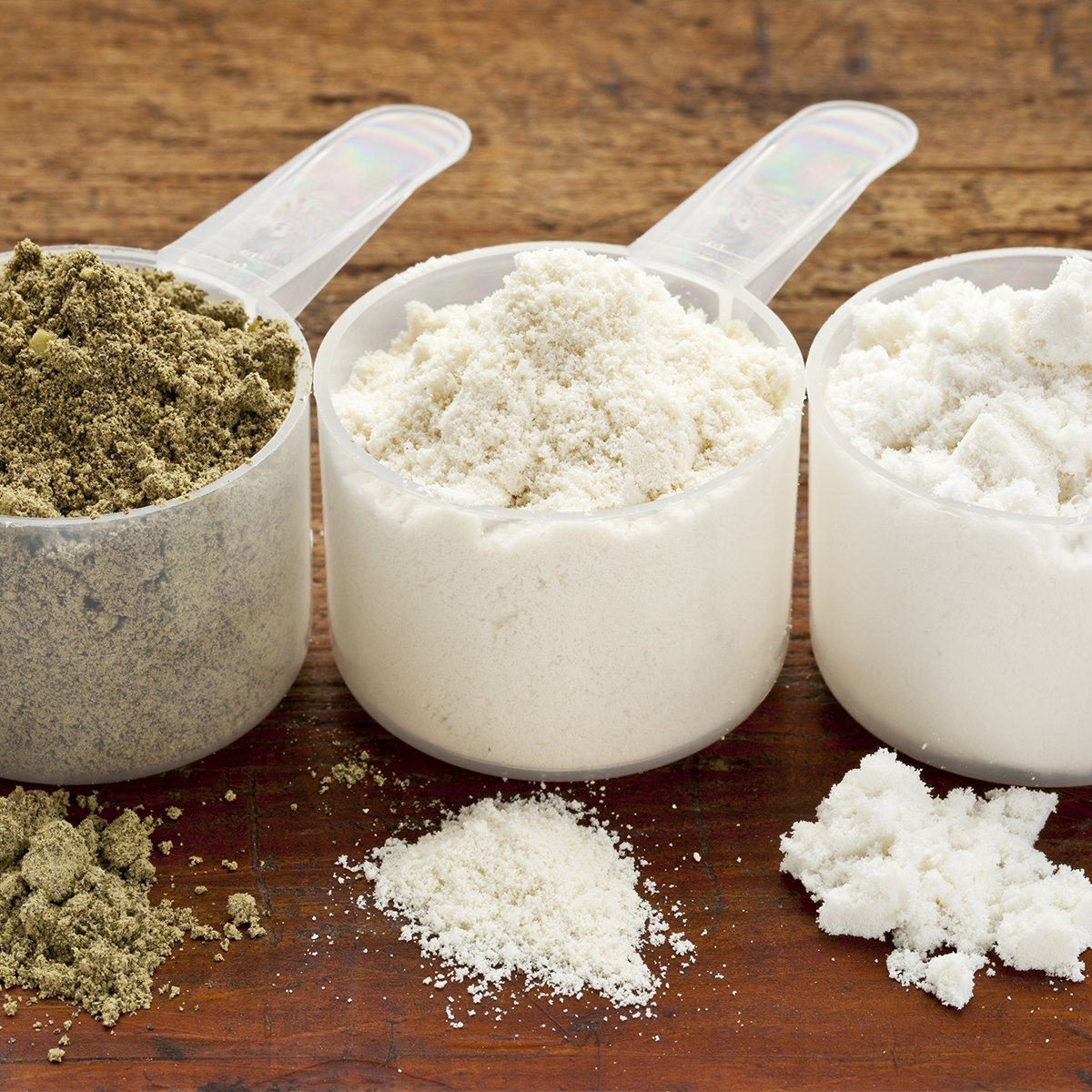The most concentrated forms of dietary protein are animal-based foods like fish, meat, and dairy products. Some of the most popular sources for athletes include lean steak, skinless chicken or turkey breast, tuna, eggs, and cottage cheese or yogurt.
On average, beef steak contains about 23 grams per 3-ounce serving, while the same amount of pork provides 26, and chicken provides about 24. Meat normally contains all nine of the essential amino acids our bodies need to get from food.
Fruits, vegetables, grains, nuts, and seeds contain significant amounts, but individually usually lack one or more of the nine essential amino acids. Experienced vegans and vegetarians make a practice of combining these incomplete protein sources to form what are known as “complete proteins.”
Bodybuilding.com's article "Simple Guide to Choosing Complementary Proteins" can show you the most common ways to build complete proteins from plant-based sources
However, as long as you eat a diet with a wide range of vegetable sources, you probably don't need to worry about creating complementary proteins at every meal. High-quality vegetarian sources include quinoa, buckwheat, hempseed, chia seed, soy, Ezekiel bread, mycoprotein (Quorn), rice and beans, seitan, spirulina, many grains or nuts, hummus and pita and, last but far from least, the good old peanut butter sandwich. Even green vegetables like broccoli and asparagus offer a decent amount.
Many vegetarians and vegans also use plant-based powders to help ensure they're getting adequate amounts of essential aminos, and protein in general.


